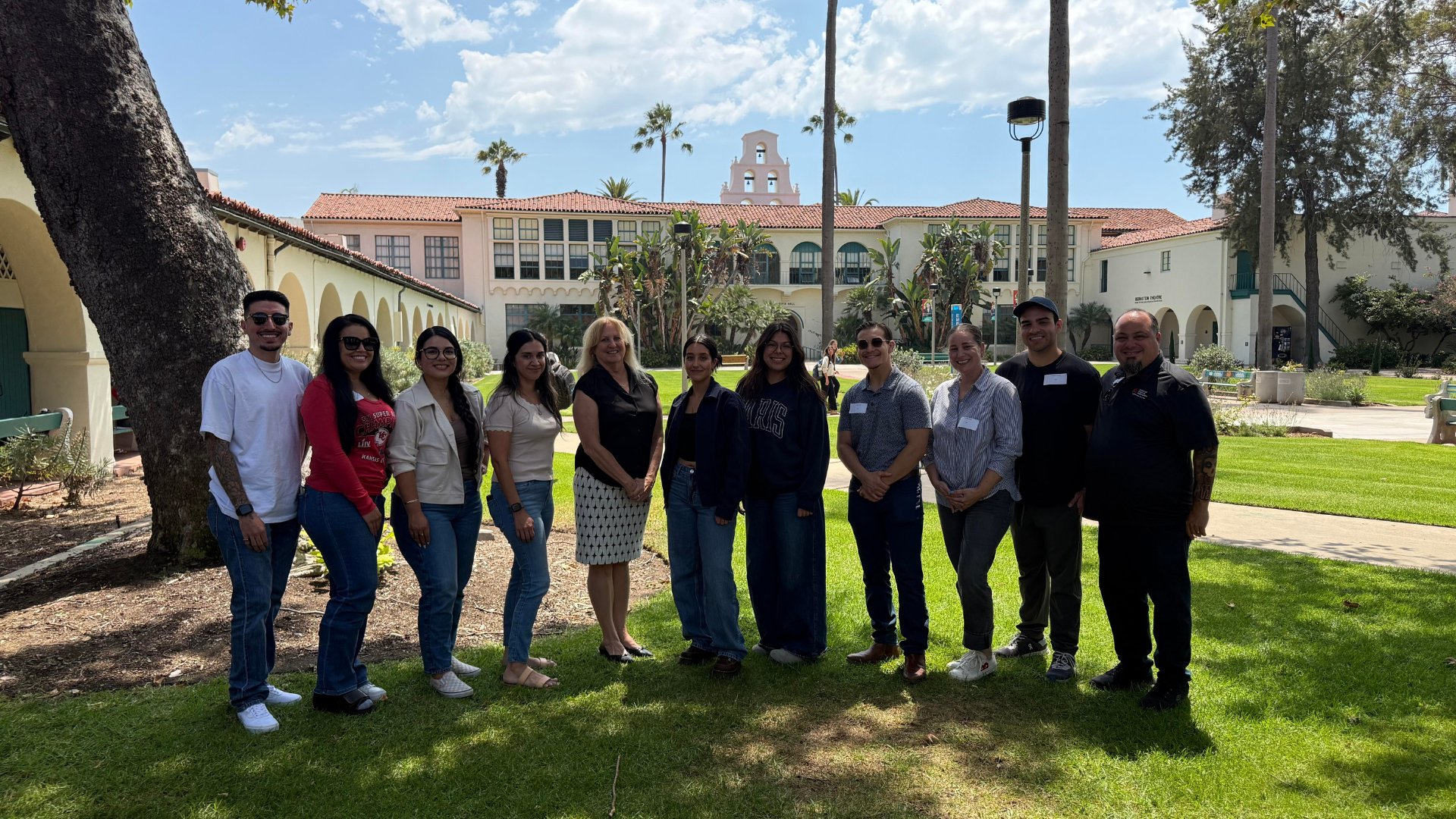
San Diego State University is expanding its impact on the health care workforce with the launch of four new Doctor of Nursing Practice (DNP) programs.
With the demand for advanced practice nurses rising sharply in San Diego and Imperial Valley counties, and elsewhere across California, these new offerings represent a major step in preparing the next generation of nursing leaders.
“The health care landscape is evolving quickly, and the need for highly educated nurses has never been greater,” said Judy Dye, associate director of Graduate Programs within SDSU’s School of Nursing.
The new advanced nursing tracks will prepare nurses to provide comprehensive care across the lifespan, from childhood through older adulthood; to specialize in promoting health and managing chronic conditions in adults and seniors; and to focus on supporting patients’ mental health and wellbeing.
There is also an option for nurses who already hold a graduate degree to advance their expertise and leadership through a doctoral-level program.
“These new programs expand opportunities for nurses to advance their practice and lead in improving patient outcomes at a time when the health care profession, state and California State University system are all demanding more qualified professionals,” Dye said.
New degree offerings to meet a critical shortage
To meet urgent health care needs, the four new programs at SDSU are:
- The Family Nurse Practitioner program, which prepares graduates to provide primary and specialty care across the lifespan in family medicine and outpatient clinics, notably in specialty practices and rural settings.
- The Adult-Gerontology Primary Care Nurse Practitioner program trains nurses to manage both primary and complex chronic care for patients from adolescence through older adulthood.
- The Psychiatric-Mental Health Nurse Practitioner program addresses one of the most urgent needs in health care today: access to mental health services. Graduate students will be prepared to deliver comprehensive care, including therapy and management of psychotropic medications for individuals with mental health and substance use disorders.
- The Post-Master’s DNP builds on prior graduate-level training for nurse practitioners, nurse educators, nurse leaders and clinical nurse specialists, providing additional expertise in evidence-based practice, health care policy and systems leadership.
For nurses looking to advance their practice and make a greater impact, SDSU’s DNP programs open the door to new opportunities in leadership, clinical care and evidence-based practices, said Karen Macauley, director of the SDSU School of Nursing. All four programs culminate in an evidence-based practice or translational research project, allowing students to apply their learning to pressing real-world health care challenges.
“When nurses graduate with these advanced degrees, patients and families benefit directly. They are cared for by professionals who not only bring clinical expertise, but also the ability to turn the latest evidence-based practice into practical solutions,” Macauley said.
That means “faster access to effective treatments, more personalized care, and a stronger focus on prevention and wellness, leading to healthier lives and healthier communities,” she added.
Growing, urgent health care demand
California’s health care system is at a pivotal juncture.
California is one of five states nationwide to face a significant critical nursing shortage. It is estimated the state will need 44,500 nurses by 2030, according to a 2017 report by The National Center for Health Workforce Analysis.
The state’s rapidly aging population, coupled with persistent shortages in primary care and mental health providers, demonstrates the urgent need to invest in advanced nursing education.
“The addition of these four new DNP programs underscores SDSU’s commitment to expanding advanced nursing education to meet the health care needs of our region and beyond,” said Amy Bonomi, dean of the College of Health and Human Services. “The health care landscape is evolving quickly, and the need for highly educated nurses has never been greater. Here, we are working to meet that challenge.”
By 2030, nearly 10 million Californians will be 65 years or older, comprising about one-quarter of the state’s population. This demographic shift presents unique health care challenges, as older adults often experience multiple chronic conditions and require specialized care.
Jessica Nguyen, who graduated from SDSU in 2016 with a Bachelor of Science in Nursing (BSN) and is a first-year student in the DNP program, also sees this as an urgent call to action.
“I became a nurse because I wanted to help people,” Nguyen said. It was during her clinical rotation for an SDSU leadership class that she was able to secure a job at Sharp Grossmont Hospital, one that she still holds.
Nguyen said that even during the first week of instruction in the DNP program, she saw an immediate benefit to the program’s framework and how it is helping her to apply evidence-based practices to improve patient care.
“I value our profession’s values of empathy and altruism,” said Nguyen, who now works in Grossmont’s Surgical ICU while pursuing her DNP toward becoming a cardiac nurse practitioner focusing on cardiac surgery and heart failure.
“As a critical care nurse, I also value our autonomy and critical thinking skills that our job requires,” she said. “In the hospital, you see people during one of the most stressful and overwhelming situations. To help them navigate through that time and to provide them care that allows them to have some type of relief or comfort makes me proud of what I do.”
news/2025/09/sdsu-launches-four-new-nursing-programs-address-critical-healthcare-needs”>Source link

